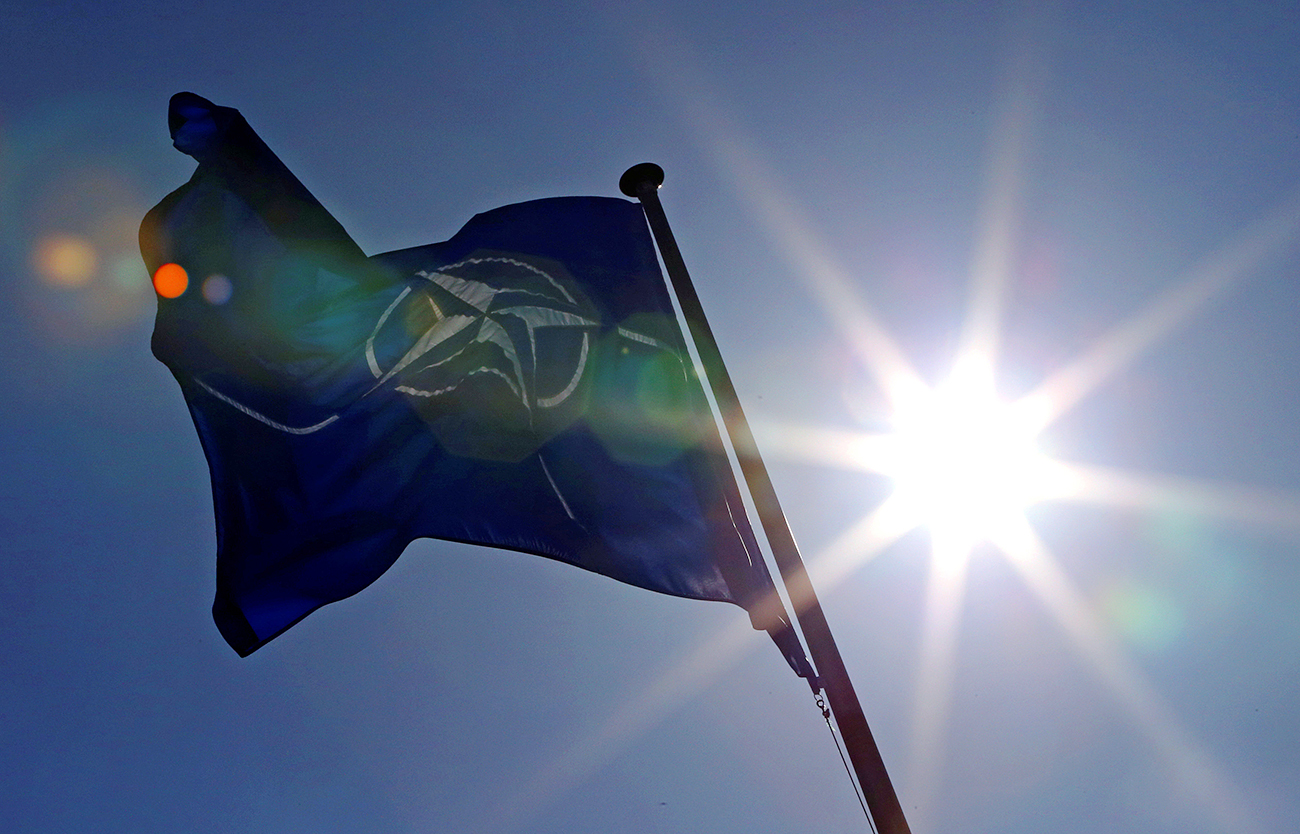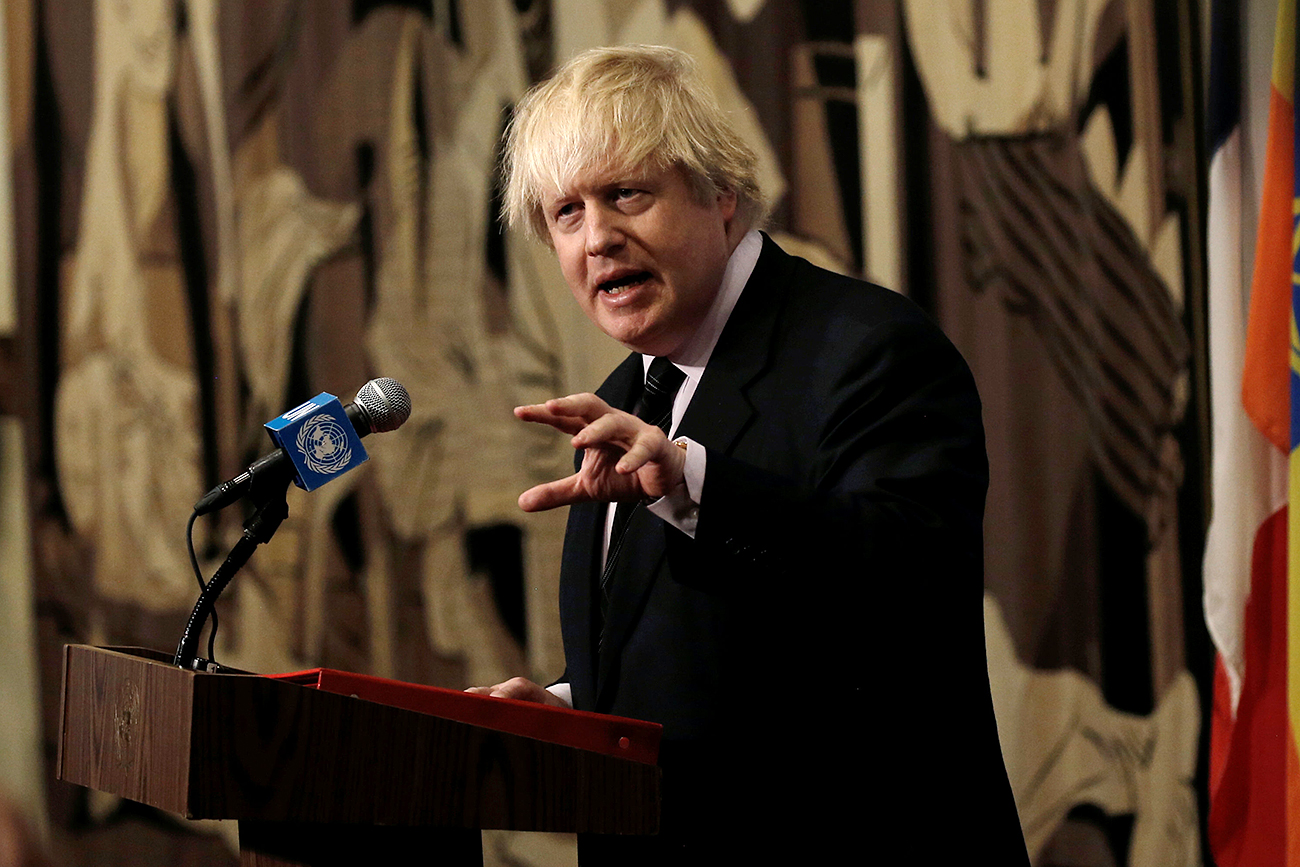Montenegro is stirring U.S. and UK interests in the Balkans

While the leaders of continental Europe have been guessing what Trump’s true intentions are, the UK has voiced its own initiatives for the Balkans, where NATO continues with its peacekeeping operation.
ReutersThe decision by the U.S. Senate to ratify the protocol allowing Montenegro to join NATO now means it’s up to President Donald Trump to decide if the Balkan country, with a population of around 650,000 and a tiny army, will join the military-political alliance. Russia historically views NATO’s expansion as a threat to its own security, so the news will rattle Moscow.
Trump's expected approval of the document will further deepen the Kremlin’s growing disillusionment with the new U.S. president, who has been slammed for having alleged ties to Russia and his sympathy towards President Vladimir Putin. The UK, however, may be even more surprised by the development: Judging from the latest comments from British politicians, London may be thinking about grabbing the reins from the U.S. leadership in the Balkans.
European solidarity
"The decision to accept Montenegro into NATO appears to be the signal the Trump administration is sending to the effect that the U.S. remains loyal to NATO and its European partners," says Richard Weitz, director of the Hudson Institute's Center for Political-Military Analysis and an expert at the Valdai Discussion Club. Trump's loyalty to America’s European partners and NATO has been widely doubted ever since his presidential campaign. While the leaders of continental Europe have been guessing what Trump’s true intentions are, the UK has voiced its own initiatives for the Balkans, where NATO continues with its peacekeeping operation.
"In light of the alleged Montenegro coup plot, I will call for us to do more to counter destabilising Russian disinformation campaigns and raise the visibility of the western commitment to this region," Prime Minister Theresa May stated in March. She proposed the UK as the host country for the Western Balkans Summit scheduled for 2018.
Experts believe May's comments were an attempt to assure the UK’s European partners that Britain’s presence in the Balkans will continue. "The current situation in the EU is such that ideas for its future development need to be proposed," says Ekaterina Entina, assistant professor at the Faculty of World Economy and International Affairs of the Higher School of Economics. "Theresa May's words about the obvious destabilization in the Balkans are likely an attempt to say that even though the UK is leaving the EU, it will not leave Europe as an international player, as well as a manifestation of the pan-European solidarity."
While the world is still trying to understand what Trump's policy for Europe could be, London may be assuming a lead role in Europe, including in the Balkans. Nevertheless, Trump's criticism of NATO does not guarantee the U.S. president will not want to provide his support for the Alliance.
"The general course in the U.S. is towards supporting any alliances that are of interest to the country's foreign policy," says Andrey Sushentsov, head of the Foreign Policy Analysis Group and a program director at the Valdai Club. NATO is one such alliance. The U.S. will likely continue to provide security guarantees to its European and Asian allies by deterring their opponents."
Centers of confrontation
Even though the formal accession of yet another Balkan country to NATO, which may effectively be implemented within several months from now, would certainly prompt a negative reaction from Moscow, experts warn against overestimating Montenegro's significance to the Russia-NATO relations.
"Montenegro is not on the geopolitical frontier between Russia and the West," Sushentsov notes. "Its inclusion into NATO would be a significant development, but not as significant as the Alliance's interest in Ukraine or Georgia, for example."
Even if President Trump does not want to compromise an already fragile dialogue with the Kremlin and refrains from publicizing Montenegro’s accession to NATO, Moscow will still view the move as offensive.
"These plans run counter to the Russian diplomacy's belief that NATO's expansion is robbing both Russia and NATO of the chance to establish relations of mutual confidence, and that this turns the countries lying between Russia and NATO into a sort of buffer zone, or indeed into hotbeds of confrontation," added Sushentsov.
Read more: Why is Putin expanding Russia’s armed forces to 1.9 million?>>>
If using any of Russia Beyond's content, partly or in full, always provide an active hyperlink to the original material.
Subscribe
to our newsletter!
Get the week's best stories straight to your inbox
